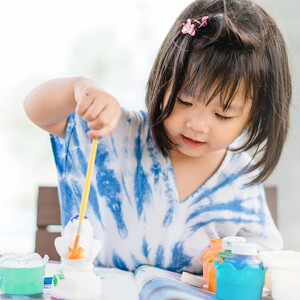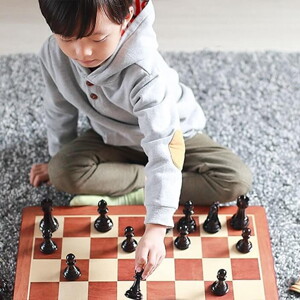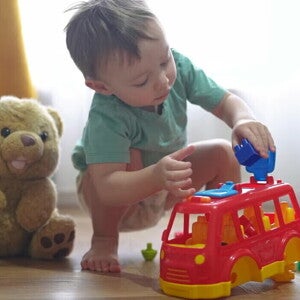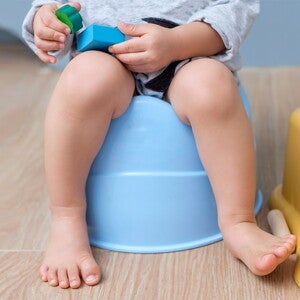
How to Raise A Lifelong Learner Through Reading: 11 No-Fail Tips
Raising little ones as continuous learners helps their cognitive health, communication skills, confidence, and socialisation skills.

How Dynamic Learning can Redefine your Child’s Education Experience
Balancing static and dynamic learning environments keeps children interested in learning and encourages creativity.

11 Fun Ways To Develop Your Child's Working Memory (Ages 1-7)
Apart from developing your children's working memory by reading, playing, singing, and performing activities together, make sure to give brief and clear instructions for them to understand easily.<

5 Qualities of an Exceptional Child with a Thirst for Learning
Help your child become an exceptional child by encouraging him or her to be curious, confident, and persistent, have empathy and good communication skills, and to think creatively.

Physical Play and Mental Development
Encourage children to engage in physical activities to prepare them for the challenges of school.

3 Signs of A Healthy Baby's Brain Development – and the Nutrients Behind Them
Sphingomyelin, iron, and choline are important in boosting a growing child's brain performance, memory and playfulness. A healthy and balanced food intake can help provide complete nutrition.

Due date Calculator
To calculate your baby's estimated date of delivery (EDD), select the year, the month and the date of the first day of your last period.

Weekly pregnancy calendar
Embark on the incredible and transformative journey of pregnancy with our comprehensive week-by-week guide.

Building the Memory Muscle: How to Help Your Child Improve His Memory
Build and strengthen children's memory by engaging their senses and sticking to routines to help them focus, retain information, and learn new skills or talents.

Supportive Parenting: Helping Children Realize Their Potential
Harness your children's potential by guiding, nurturing, and supporting them. By allowing your children to read and be physically active, it helps to encourage their imagination and creativity.

PROMAMA®
For both pregnant and breastfeeding mothers, what you consume directly affects the development of your child.

S-26 GOLD Progress & Promise Sep 2025 TOOKY TOY Redemption Promotion
S-26 GOLD Progress & Promise Sep 2025 TOOKY TOY Redemption Promotion

Brain Games Help Boost Your Child’s Mental Skills
Enhance children's brain growth by exposing them to games that can nurture creative thinking and problem-solving skills.

Your baby's development milestones in the first three years
Different children tend to meet physical growth and cognitive development milestones at different times. To encourage them, parents can offer constant engagement and a nutrient-rich diet.

Ear Care & Hearing
Parents should note if their children's speech is delayed or difficult to understand, have trouble holding their heads steady, or do not respond when called as these are signs of hearing problems.<

11 Ways to Spark a Love of Learning in your Child
Nurture a lifelong interest for learning in children by reading, role-playing, interacting, and engaging with them. Encourage them to make decisions, think critically, and value their opinions.

How to protect your baby before conception
Protecting your baby-to-be from problems during pregnancy starts even before conception and this can be supplemented by a balanced diet, active lifestyle, and regular exercise.

Planning for Birth
Plan the details of your childbirth to ensure you make the best and safest options for your child, as well as get the best support from your doctor and family.

Episiotomy Care
There are multiple factors that can help ease the pain and the healing process of an episiotomy, including hygiene factors and medication subscribed by the doctor.

25 Age-appropriate Educational Toys for Kids and Toddlers
Parents can try using educational toys for babies and kids, such as building blocks and puzzles to best nurture their children's learning experience, curiosity, and mental development.

Caffeine Tracker
The caffeine tracker can help you assess how much caffeine you might be consuming in your diet.

Learning, Memory, & Social Development - Connections to Nutrition
Our brain: The ‘subway map’ that transports information to-and-fro, supporting the learning process.

What nutrients do babies need for brain development?
Your growing child's nutrient intake for early cognitive development is important to ensure that he or she has good mental performance, memory, and intelligence in the long run.

At what age do babies start talking? A Year-to-Year Guide
Children's speech milestones can be observed by their babbles and imitations.

Potty Training
Observe signs that your toddler is ready for potty learning and start preparing him with the basics. Practise these tips for successful potty training to avoid resistance and prolong training.

Just had a C-section? These tips will help with your recovery!
For mums that have just had a C-section delivery, getting assistance from your family can help you have a smoother recovery. Learn tips on how to care for your wound and recuperate.

6 Skills Your Child Needs for the Future and What You Can Do to Help
The key to raising future-ready children is to encourage them to be well-rounded and emotionally healthy. Expose them to social, musical, physical, visual perception, and language skills.

Eye Care & Vision
During routine check-ups, the doctor examines your child's eyes to ensure that his or her visual acuity is developing normally.

What’s your blood sugar number?
Whether you’re thinking about trying for a baby or are already pregnant, managing your risk of getting pregnancy diabetes is important to ensure a healthy and safe pregnancy.

Health Checkups
During regular check-ups to monitor children's growth, doctors usually evaluate their vision and hearing, discuss their eating habits, and assess their physical and mental development.

Food Allergies
Diarrhoea, vomiting, itching, tightness in the chest, and swelling of the mouth are signs of food allergies and reaction.

26 ways to settle your baby
When baby won't settle, you can do more than count from 1 to 10 - try 26.

